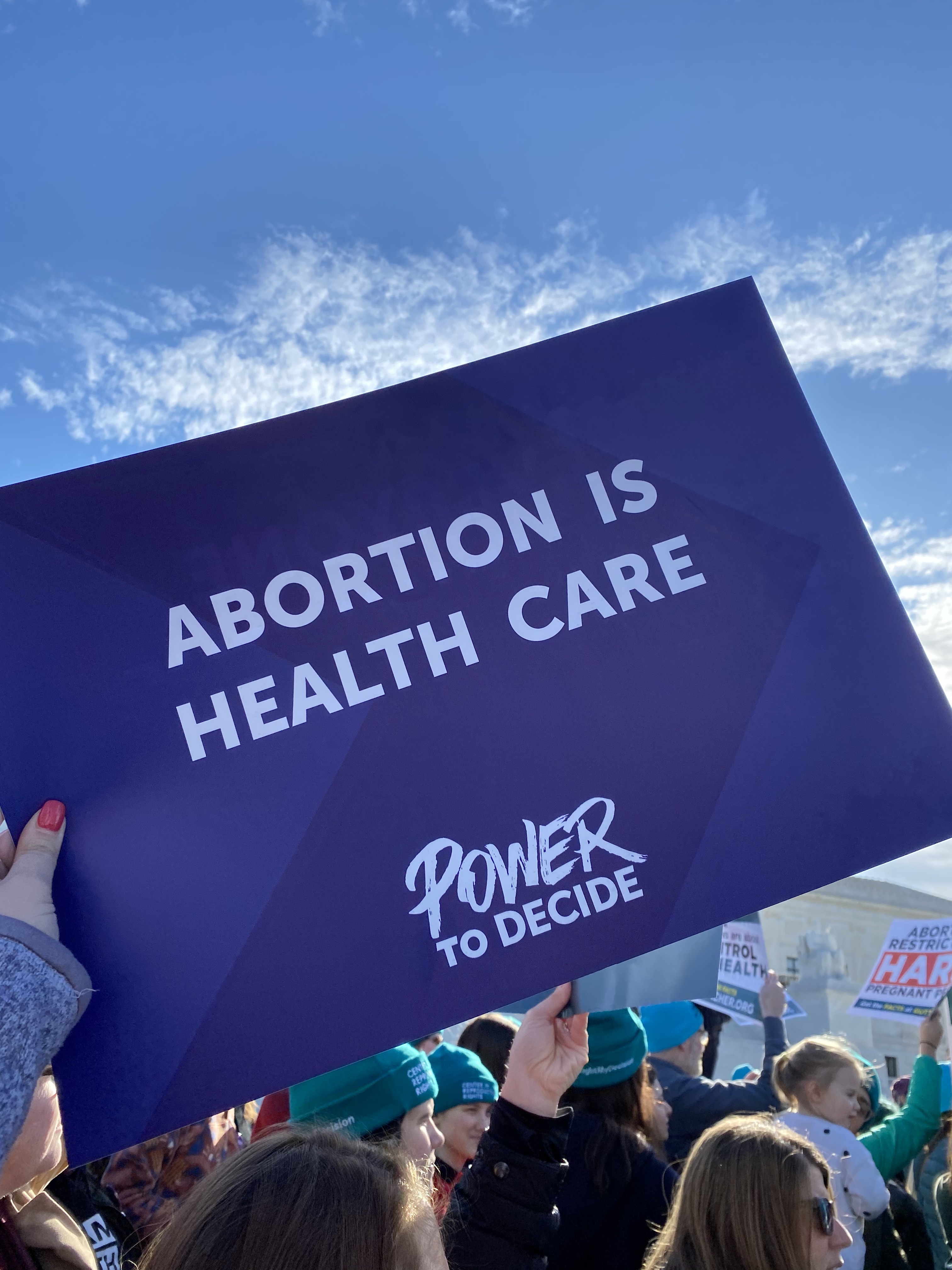Restrictions on Abortion Care Prevent Critical Access For Millions of Women
Friday, Jan. 22 marks the 48th anniversary of Roe v. Wade, the landmark 1973 U.S. Supreme Court ruling that legalized abortion nationwide. The day is cause to celebrate 48 years of women having the legal ability to decide for themselves if, when and under what circumstances to have a child. However, access to abortion care remains deeply inequitable.
And without question access to abortion care has increased women’s professional and economic vitality despite pervasive efforts to restrict access to those who need it most.
In the decades that followed the Supreme Court’s decision, a widespread effort to restrict access to abortion gained significant ground. Under the guise of ensuring patients’ safety, states aggressively pushed strict regulations to restrict access to abortion care and ongoing legal challenges that were designed to add additional barriers. In just the last two years, 83 state policies were enacted to restrict access to abortion services.
In addition to state efforts, the most pervasive and harmful of restrictions is the Hyde Amendment, annual legislative language attached to spending bills that bars federal funding from covering abortion care. Since 1976—three years post Roe v. Wade—the Hyde Amendment has denied insurance coverage of abortion care for people who are navigating the world and the health care system with the fewest financial resources.
Specifically, the Hyde Amendment makes abortion coverage in Medicaid dependent on where you live. Currently, 35 states and Washington, D.C., do not use state Medicaid funds to cover abortion care. In these areas, there are more than 7 million Medicaid beneficiaries who are women of reproductive age and who do not have insurance coverage for abortion care. Without insurance coverage, the cost can be too great a burden for people to get the care that they need.
Of those 7.5 million, more than half (51 percent) are women of color. This means that financial barriers to abortion care disproportionately impact people of color who too often cannot meet the costs for the abortion care they need.
Furthermore, earlier this month, the Supreme Court ruled, contrary to the evidence and despite the ongoing pandemic, that those seeking medication abortion care must go in person to a clinic or provider to pick up the medication, regardless of the threat it poses to people’s health and safety. This requirement comes amidst a pandemic that has disproportionately impacted people of color, and here again they will face the greatest harm.
In 2019, an independent poll reported that two-thirds of people in the United States believe abortion should be legal in “all” or “most” instances. According to the same poll, 73 percent of people are opposed to overturning Roe v Wade. Unfortunately, despite widespread public support for abortion care, less than half of states would protect abortion rights should Roe v. Wade be reversed by the U.S. Supreme Court.
However, Targeted Regulations of Abortion Providers (TRAP) restrictions, such as burdensome waiting periods, medically inaccurate counseling requirements and an unnecessary requirement to collect medication abortion pills in person all pose significant challenges for women seeking abortion care. These restrictions have not improved patient safety or the patient experience—rather, they make access to abortion care more difficult for people struggling to make ends meet and can result in people being unable to access the abortion care they need. A study also showed that denying wanted abortion care can have adverse consequences for women’s health, safety and economic well-being.
I was a college student when I traveled to Moshi, Tanzania, to study the causes of maternal mortality. While there, my research revealed that complications of unsafe abortion were the leading cause of death in that region of Tanzania at that time. I have witnessed firsthand the terrible consequences that people and families can face when they do not have access to safe, comprehensive reproductive health services.
As a gynecologist who has included abortion care as part of my practice for nearly 17 years, I know the damage done to people’s reproductive health as a result of policies that restrict or deny access to comprehensive reproductive health services. We must all work to lift such restrictions for the benefit of everyone’s reproductive health and well-being. In the end, we must ensure that regardless of who they are, where they live or how much money they make, everyone has access to the full spectrum of reproductive health care, including abortion care without unnecessary burdens and barriers.
At Power to Decide, we call on Congress and President Biden to eliminate the harmful and deeply inequitable Hyde Amendment and pass legislation that blocks unnecessary restrictions on abortion care. Only then can we begin to build fully on the promise of Roe v. Wade.
This article was original posted on Ms. Magazine's website at: https://msmagazine.com/2021/01/21/roe-v-wade-restrictions-on-abortion-c…
